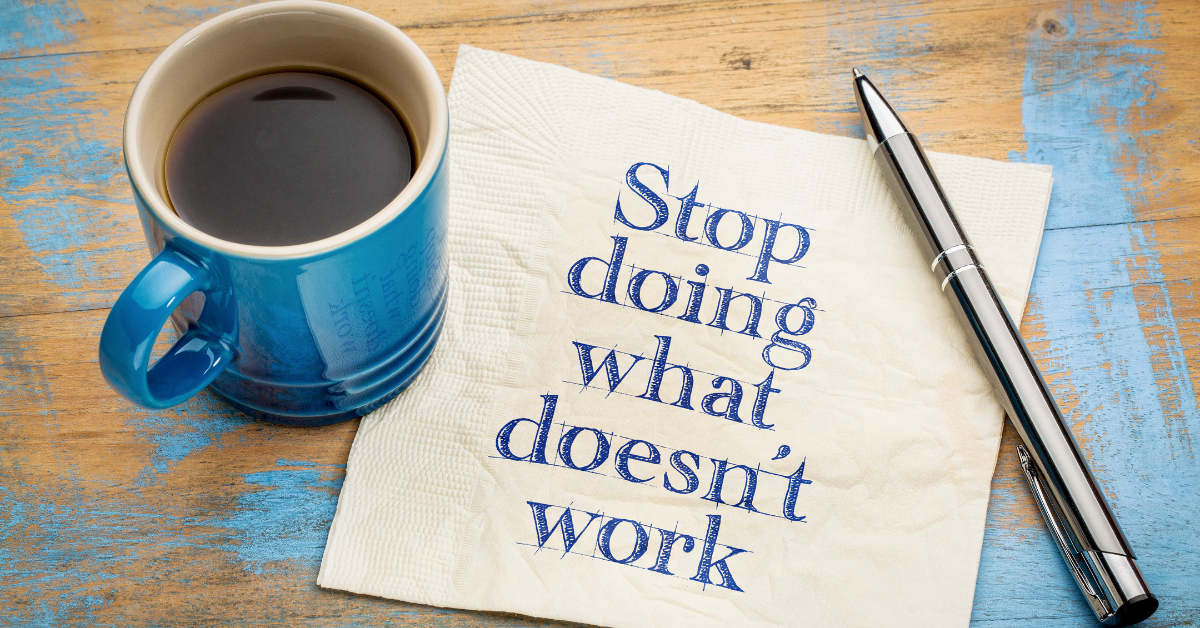Communication isn’t always easy and it sure is frustrating when you think you’re on the same page with someone but it turns out you aren’t even reading the same book! In this blog, we cover some of the reasons you’re having that problem.
Communication; you’ve had a conversation. It seems like everyone is on the same page. But when you come back together, you’re left wondering what the heck happened. How did they get so far off base?
It’s because you’re probably making one of these 5 communication mistakes.
# 1 You think there’s a one-size-fits-all approach to communication. Every one of us has a preferred communication style and a way of conceptualizing, as well as, a way of processing thought. The problem is we think everyone has our style, and nothing could be further from the truth. This is where communication issues start and tempers flare. You need to be aware of it.
The truth of the matter is: the person who can adapt best to other people’s communication styles is going to be the one who comes out on top every single time.
# 2 You assume they understand you. Just because you get a nod, doesn’t mean the other person fully understands what you’re saying. The pictures you hold in your head as you talk, are very different than the pictures the other person is seeing in theirs. Case in point, if you say the word grandmother, you will think of yours, and they will think of theirs, along with the emotional associations that come with it. You get a nod, but the concept is very different from person to person. We can also assign different meanings to words or to instructions. “Early next week” might mean Monday to you, but Wednesday to them.
Unless you ask questions after you talk, to ensure you’re on the same page, you’re leaving yourself open to surprises.
# 3 You think you know what they’re thinking. The better you know someone the more likely you are to put words in their mouth. The sum of all our various experiences shape the way we think, act and react. You can never really know what another person is thinking because you haven’t walked the road they’ve walked.
The only way you can be sure of what’s going on in that other person’s brain is to ask what they’re thinking, and keep digging to get clear.
# 4 You react instead of respond. When a discussion gets heated or a situation gets out of control, we usually resort to one of our internal programs. A snap reaction that typically doesn’t go well. And once it’s out there you can’t take it back. We all know “that person” who loses it when things don’t go their way. It makes other people really uncomfortable.
The only way you can change this is to become more self-aware. Once you become more conscious of the way you think, behave and react, you have a starting place to make a change and become a better communicator and leader.
# 5 You avoid tough conversations. Doing hard things is…well…hard. No one likes it. And none of us enjoy having to have a tough conversation. But it’s those conversations that provide growth: for the person on the other side of the table who gets the feedback they need; for you who gets to be the catalyst for change; and for your company which benefits from everyone moving in the same direction.
These are the conversations you need to prepare for. You also need to remain calm and respond to objections or questions, instead of reacting.
So how do you get better at all of this? You become more self-aware. Not only do you get to know yourself better, but you also become more aware of the way other people operate and how it’s different from you. We have a course to do exactly that.
Check out the Power of Self Awareness today!




